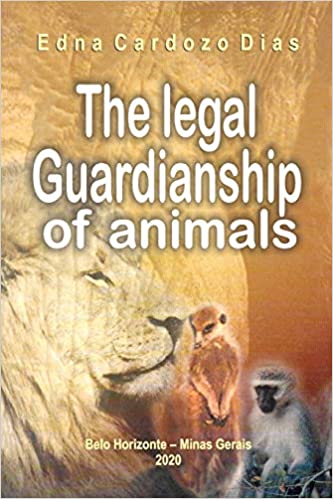Results
| Title | Citation | Alternate Citation | Summary | Type |
|---|---|---|---|---|
| Canada - British Columbia - Division 1 -- Regulation of Animals | R.S.B.C. 1996, c. 323, s. 702.1 - 707.1(10) |
This set of British Columbia, Canada laws addresses animal control. The provisions give the animal control board the authority to regulate loose animals and licensing of dogs. |
Statute | |
| Commonwealth v. Duncan | 7 N.E.3d 469, cert. denied sub nom. Duncan v. Massachusetts, 135 S. Ct. 224, 190 L. Ed. 2d 170 (2014) | 467 Mass. 746 (2014) | This case deals specifically with the issue of whether or not the emergency aid exception to the warrant requirement of the Fourth Amendment extends to police action undertaken to render emergency assistance to animals. In this particular case, police officers were called to defendant’s property after a neighbor reported that two of defendant’s dogs were deceased and a third dog looked emaciated after being left outside in inclement weather. After showing up to the defendant’s home, police contacted animal control who immediately took custody of all three dogs, despite defendant not being present. The court held that the emergency aid exception did apply to the emergency assistance of animals because it is consistent with public policy that is “in favor of minimizing animal suffering in a wide variety of contexts.” Ultimately, the court determined that the emergency aid exception could be applied to emergency assistance of animals if an officer has an “objectively reasonable basis to believe that there may be an animal inside [the home] who is injured or in imminent danger of physical harm.” The matter was remanded to the District Court for further proceedings consistent with this opinion. | Case |
| Oregon Natural Desert Ass'n v. Kimbell | Slip Copy, 2008 WL 4186913 (D.Or.) |
After filing a complaint challenging certain decisions by the United States Forest Service and the National Marine Fisheries Service authorizing livestock grazing within a national forest, Plaintiffs filed a Motion for Temporary Restraining Order and/or Preliminary Injunction seeking an order prohibiting the authorization of livestock grazing on certain public lands until Plaintiffs’ claims could be heard on the merits. The United States District Court, D. Oregon granted Plaintiffs’ motion, finding that Plaintiffs are likely to succeed on the merits of at least one of its claims, and that Plaintiffs made a sufficient showing that irreparable harm would likely occur if the relief sought is not granted. |
Case | |
| United States v. Bowman | 43 S.Ct. 39 (1922) | 260 U.S. 94 (1922) |
This case involves a conspiracy charge to defraud a corporation in which the United States was a stockholder. The Fifth Circuit Court of Appeals in United States v. Mitchell referred to this Supreme Court case when it found that the nature of the MMPA does not compel its application to foreign territories. |
Case |
| The Legal Guardianship of Animals |
|
Policy | ||
| Additional Protocol to the European Convention for the Protection of Animals During International Transport | Amendments to the European Convention for the Protection of Animals During International Transport. The amendments are mainly procedural rather than substantive. | Treaty | ||
| AL - Public Nuisances - Chapter 10. Nuisances Menacing Public Health | Ala. Code 1975 § 22-10-1 to 3 | AL ST § 22-10-1 to 3 | This set of laws lists various animal-related actions and conditions that are considered nuisances per se because of their significant public health risks. In addition, it addresses the methods by which such nuisances may be abated, up to and including the destruction of property without compensation. | Statute |
| Animal Law Review Vol 12 Table of Contents |
|
Policy | ||
| Baugh v. Beatty | 205 P.2d 671 (Cal.App.2.Dist.) | 91 Cal.App.2d 786 (Cal.App.2.Dist.) |
This California case is a personal injury action by Dennis Ray Baugh, a minor, by John R. Baugh, his guardian ad litem, against Clyde Beatty and others, resulting from injuries suffered by the 4-year old child after he was bitten by a chimpanzee in a circus animal tent. The court found that the instructions given were prejudicial where the jurors were told that the patron could not recover if the patron's conduct caused injury or if the conduct of the father in charge of patron caused injury; instead, the sole question for jury should have been whether patron knowingly and voluntarily invited injury because the animal was of the class of animals ferae naturae, of known savage and vicious nature. |
Case |
| Max Planck Institute for Comparative Public Law and International Law |
Biodiversity, Species Protection, and Animal Welfare Under International Law, Guillaume Futhazar, MPIL Research Paper Series No. 2018-22 (2018). |
Policy |
